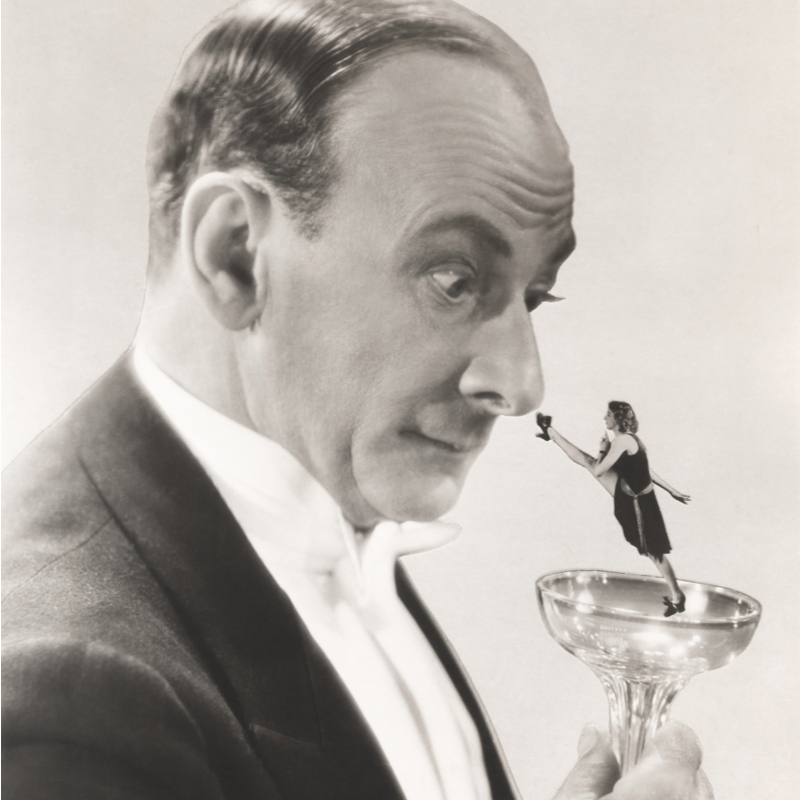My grandmother used to say she needed a glass of champagne a day to be happy! While it amuses me to prescribe this cure to anyone a bit blue, part of me knows it must be true that champagne is the best antidepressant. Grandma lived quite a life, not to mention her many years of experience and savoir-faire. Her open-house parties were famous. Among her many guests were personalities like Mahatma Gandhi, Prince Turn und Taxis, and advertiser David Ogilvy.
Champagne has antidepressant qualities, according to Grandma and science.
Hence my excitement when I read an article by two professors about champers for the science and philosophy magazine Aeon. Robert Zenit is a researcher, professor of engineering and member of the American Physical Society. And Javier Rodrigues Rodrigues is an associate professor of fluid mechanics at Carlos III University of Madrid. They both explained in the article the antidepressant qualities of a glass of champagne. And guess what? Grandmother was right!
Recent studies have shown that the interaction of carbon dioxide gas in sparkling wine with certain enzymes in our saliva causes a chemical reaction that stimulates some pain receptors. This reaction, called “carbonation bite”, is something we, humans, enjoy.
The bubbles also affect our perception of flavour and the rate at which the body assimilates alcohol. In other words, the bubbles in your drink make things tastier. Additionally, the champagne bubbles make you tipsy faster, who wouldn’t feel happier after a glass or two of this delicious antidepressant?
Champagne was invented by a Benedictine monk.
The Benedictine monk Dom Pérignon came up with ways to improve the production and quality of the bubbly drink in the 17th century. One could think of Dom Pérignon (the monk, not the brand) as the Patron Saint of parties, having saved not only gatherings but also some marriages too!
He worked for years to perfect a bottle and cork that would withstand the high pressure of the gas produced during the fermentation of sparkling wine. It is this same gas that forms the bubbles that rise to the surface of your glass. While rising, the bubbles bring up the aroma of the fabulous drink and make champagne a great antidepressant.
Speaking of bubbles, did you know that there is a science behind the shape of your champagne glasses? Read our champagne etiquette guide on how to serve and drink your bubbly.
One Champagne a day keeps the doctor away
Personally, I don’t need science to explain to me why champagne is one of the best antidepressants. I trust my grandmother. Nevertheless, it’s always good to have one more excuse to crack open the champers!
Cheers.
